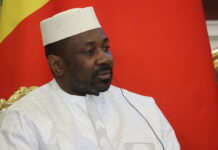
RECORD-high gold prices are driving a mining surge in Sudan, providing crucial revenue for the country’s warring factions to finance their brutal conflict, said the Financial Times.
Sudan’s gold production reached approximately 80 tons last year—worth more than $6bn—making it one of Africa’s top four producers, the newspaper said citing estimates from Swissaid. The mining industry achieved its highest output in six years despite the civil war that erupted in April 2023 between the Sudanese Armed Forces (SAF) and the paramilitary Rapid Support Force.
More than half the gold is smuggled, much of it to the United Arab Emirates and Russia, the Financial Times said. The fight for control of gold assets has been a key driver of the conflict, which has killed over 150,000 people and displaced more than 12 million.
“The industry supports the livelihoods of up to a million people, but ultimately those resources are being extracted to destroy the country,” said Ahmed Soliman, senior Africa research fellow at Chatham House.
Gold became Sudan’s principal export after the oil-producing south seceded in 2011. The mining ministry says the sector now contributes 60% of export earnings in SAF-controlled areas.
Some 90% of Sudanese gold mining is artisanal, but larger operations continue despite the war. In Darfur, the Sungo mining area controlled by RSF leader Hemeti’s family remains a key funding source, despite US sanctions.
Trade records show companies in China, the UAE and Germany shipped mining chemicals to Sudan during the past two years, the Financial Times said.
“With the rise in gold prices, there has been a gold rush in places where gold is mined illegally,” said Sasha Lezhnev of The Sentry non-profit group.
European and US sanctions have been “ad hoc,” Soliman said, calling for coordinated action to disrupt the militarised networks controlling the trade.










